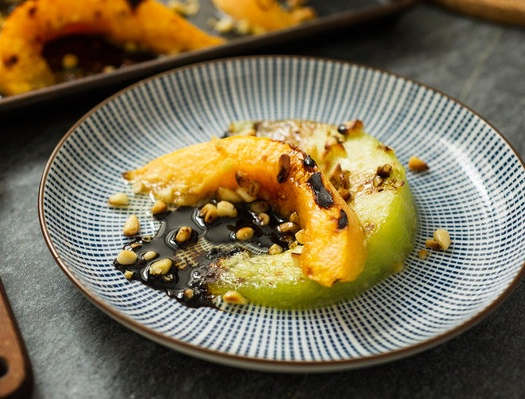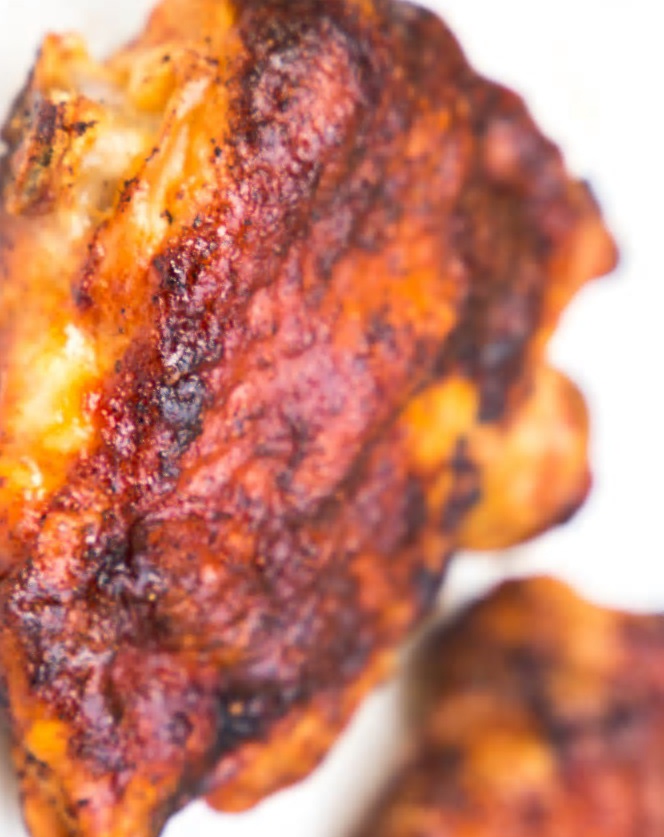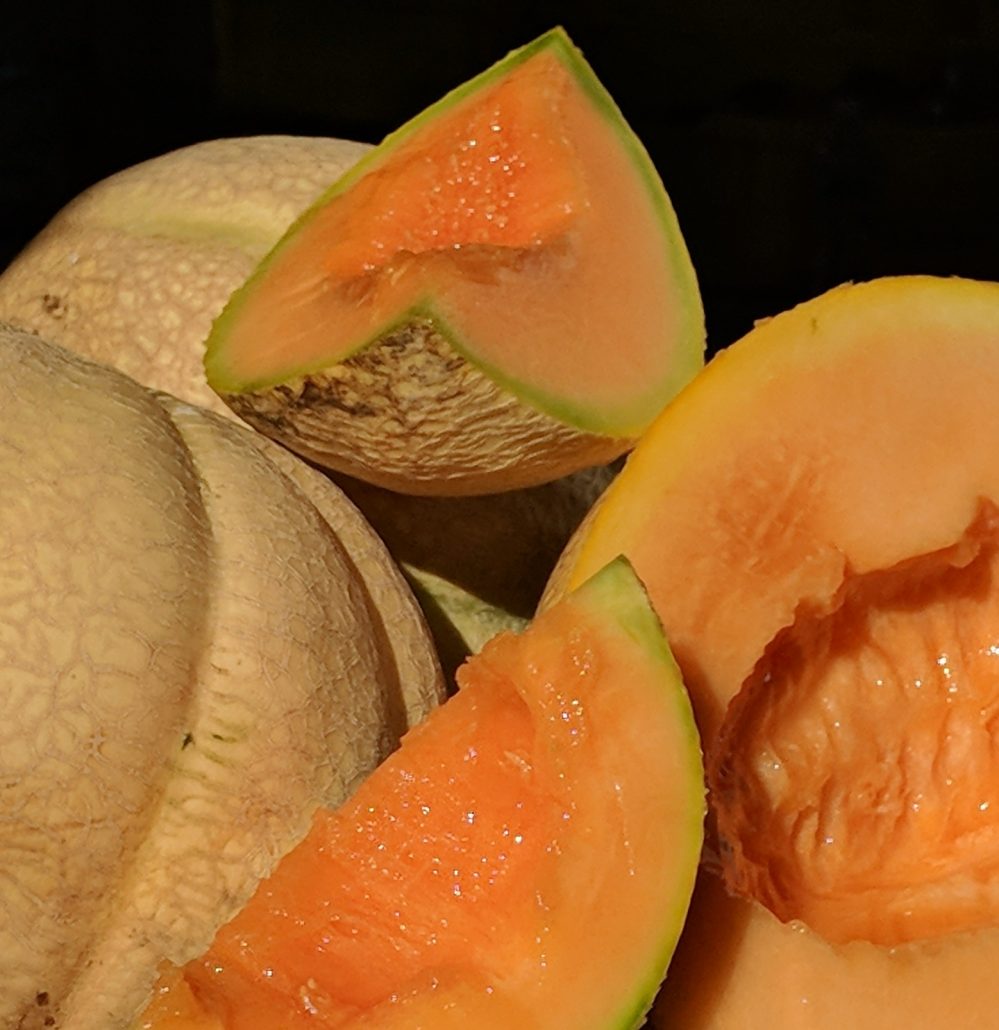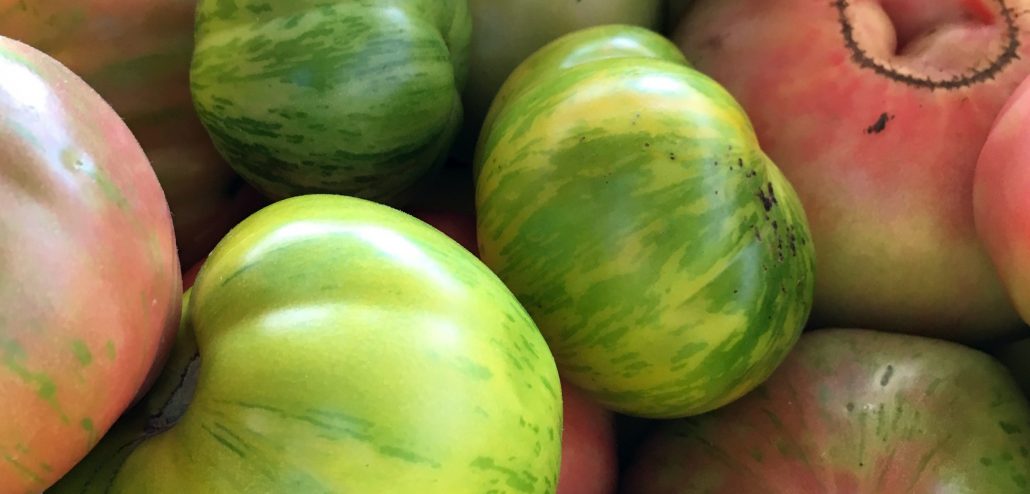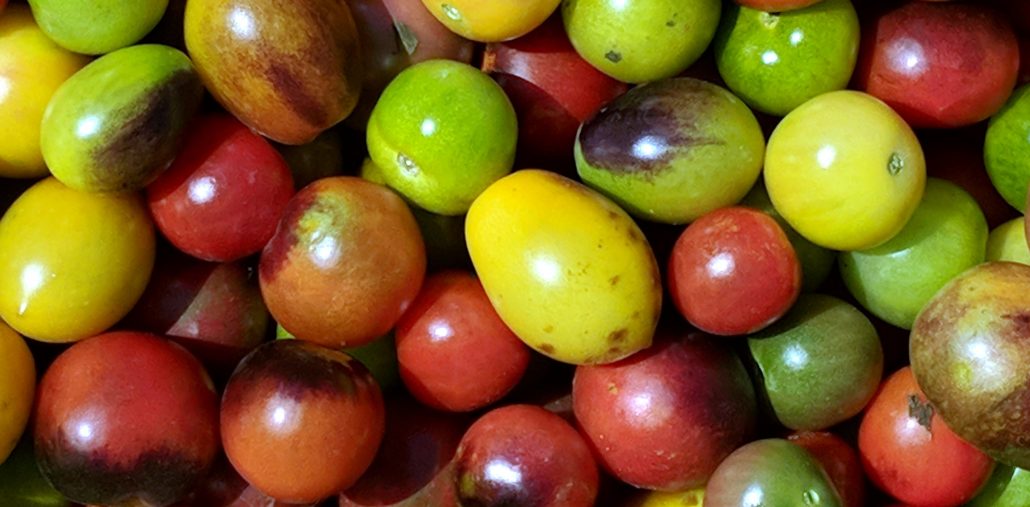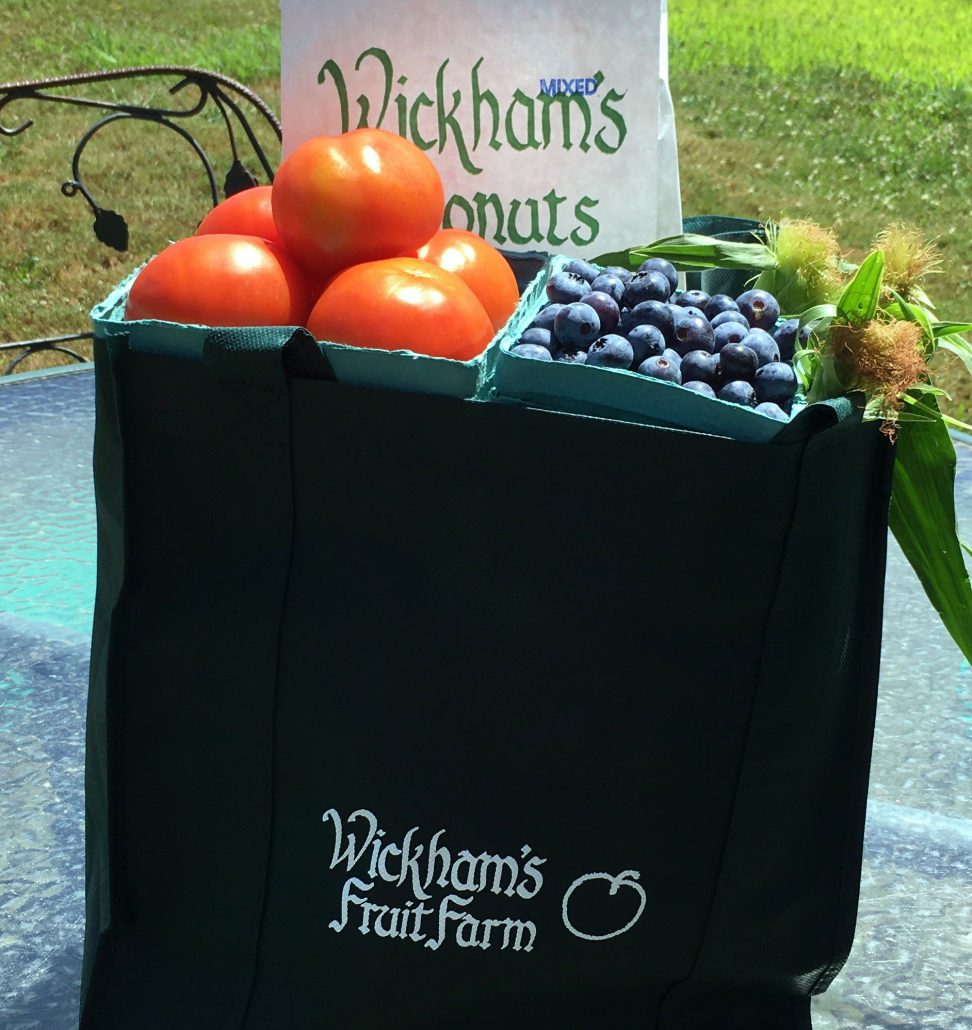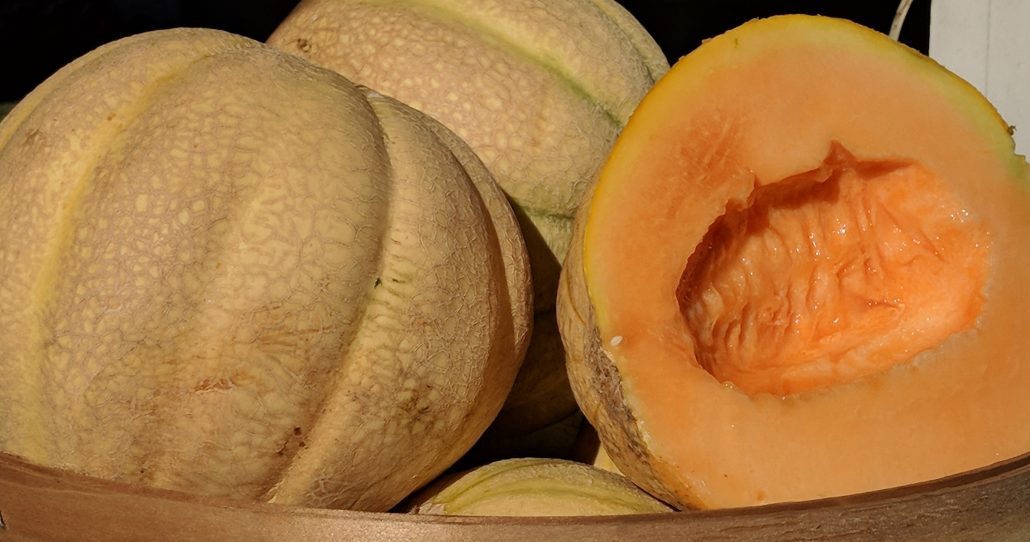A novel way to serve melons, also incorporating balsamic vinegar, from the New York Times:
1 cantaloupe or honeydew melon, cut into 1-inch-thick slices, rinds and seeds removed
4 tsp vegetable oil
1/2 tsp salt
1/2 cup chopped pine nuts
Black pepper
2 tbsp balsamic vinegar
1. Turn on broiler; heat should be medium-high and rack no closer than 4″ from heat source.
2. Brush melon all over with oil and put on a rimmed baking sheet. Broil until beginning to color, 3 to 8 minutes depending on your broiler.
3. Turn melon carefully (or skip it if the melon seems too tender to turn), sprinkle with salt. Broil until melon is fully tender, another 2 or 3 minutes; sprinkle with nuts and pass under broiler again until pieces just begin to toast, no more than 1 minute. Sprinkle with lots of black pepper and drizzle with balsamic vinegar. Serve warm or at room temperature.
